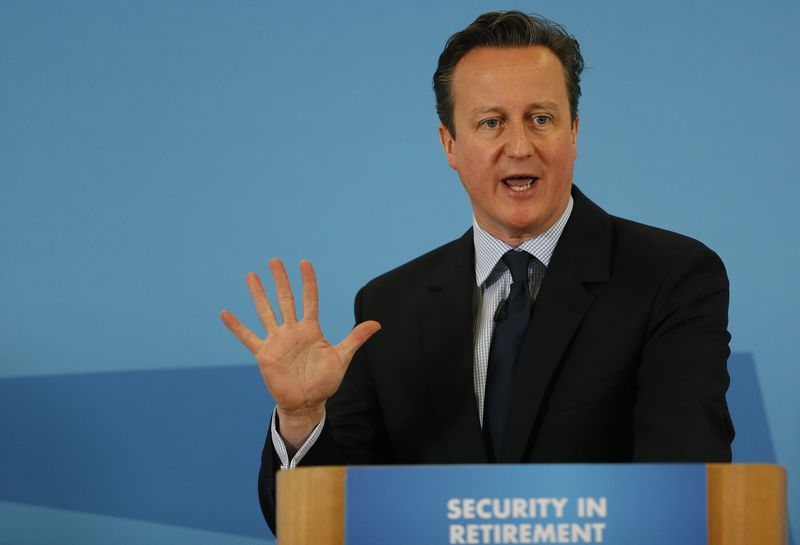By Kylie MacLellan
LONDON (Reuters) - British broadcasters said on Friday they would go ahead with a series of U.S.-style pre-election TV debates despite Prime Minister David Cameron's refusal to take part on their terms.
The move poses a dilemma for Cameron, who must now decide whether his prospects in the run-up to the most unpredictable British election in decades would be damaged more by the debates going ahead without him or by changing his mind.
In what he described as a "final offer", Cameron's spokesman said on Thursday he would take part only if there was just one debate, held before the official campaign period and including the leaders of six other political parties.
The broadcasters had agreed on a schedule of three debates, all during the campaign; two seven-ways and a third head-to-head between Cameron and opposition Labour leader Ed Miliband.
"The debates will go ahead," the four broadcasters, BBC, ITV, Channel 4 and Sky, said in a joint statement.
"The broadcasters would like the Prime Minister to reconsider taking part in all of these debates."
Cameron, whose Conservatives are neck-and-neck with Labour in many opinion polls ahead of the May 7 vote, criticised the broadcasters for what he said were chaotic preparations for the debates.
Conservative strategists were sceptical there was any advantage for Cameron in taking part in the debates, fearing they could have allowed Miliband to improve his dismal leadership ratings.
The last TV debates were watched by 22 million people and transformed the 2010 election, boosting the centre-left Liberal Democrats and depriving Cameron of an overall majority.

Cameron has been forced to govern in a two-party coalition with the Liberal Democrats ever since, an arrangement that has stuck in the craw of many of his lawmakers who argue that their plans to reform Britain have been watered down as a result.